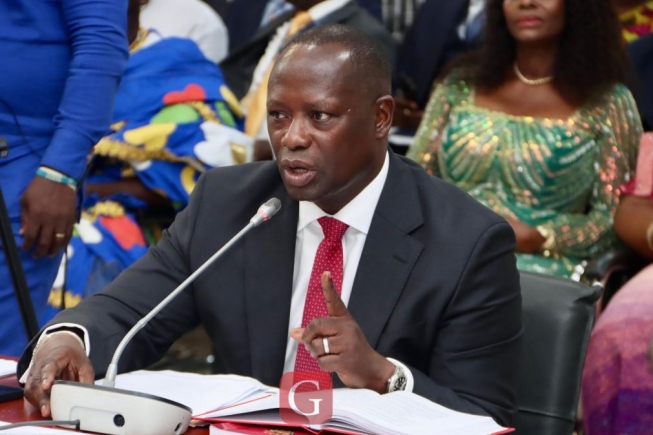
See the measures the lands minister-designate will use to tackle illegal mining
The Minister-designate for Lands and Natural Resources, Mr Emmanuel Armah-Kofi Buah, has detailed his plans to address the illegal mining (Galamsey) crisis, which has devastated Ghana's environment and natural resources.
Appearing before Parliament's Appointments Committee on January 27, 2025, Mr Buah described the state of the country’s forests and water bodies as dire, saying they are "bleeding" due to unchecked mining activities.
He blamed much of the destruction on "political apparatchiks" who have allowed illegal mining to thrive in forest reserves.
Mr Buah revealed a comprehensive strategy to combat the problem. His plans include transforming areas damaged by galamsey into zones for economic and ecological recovery, intensifying reforestation efforts across the country, and restoring degraded lands and water bodies.
He stressed that his administration would adopt a community-driven approach to mining, moving away from the current contractor-focused model.
According to him, empowering local communities to take responsibility for their environments is key to achieving sustainable solutions.
"We will ensure that communities in mining areas understand that their destiny is in their hands," he said, pledging a transparent and inclusive process to address the issue.
The Minister-designate also proposed decentralising the mining licensing system to make it more accessible and efficient.
He plans to work with the Minerals Commission to designate specific areas for mining activities, reducing the current practice of indiscriminate gold exploration across the country.
He also announced plans to repeal LI-2462, which permits mining in forest reserves.
Mr Buah emphasised that while reputable international mining companies were not the primary cause of forest destruction, the ministry would no longer issue new licences for mining in protected areas.
"We will deal decisively with those involved in illegal mining, as we have created a clear and lawful pathway for legitimate activities," he stated, adding that communities would be actively supported to participate in regulated mining practices.
